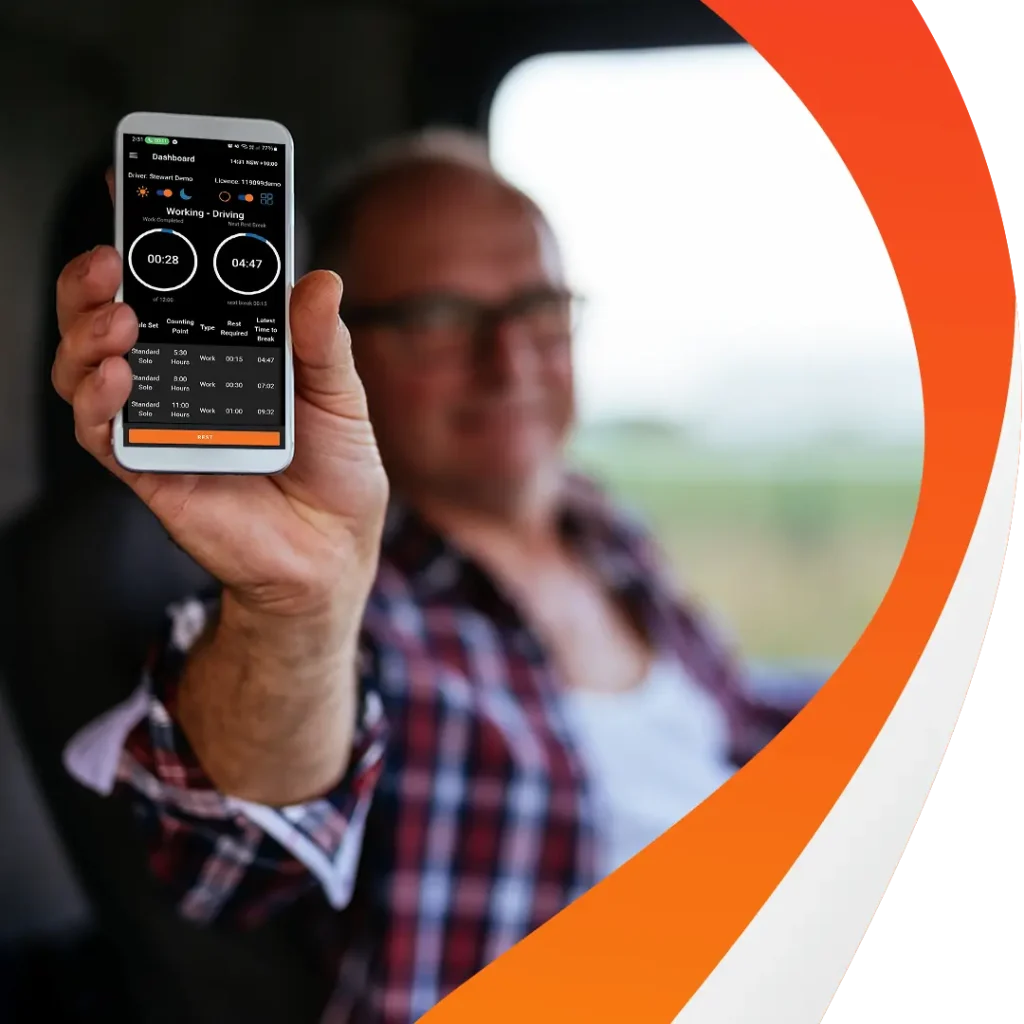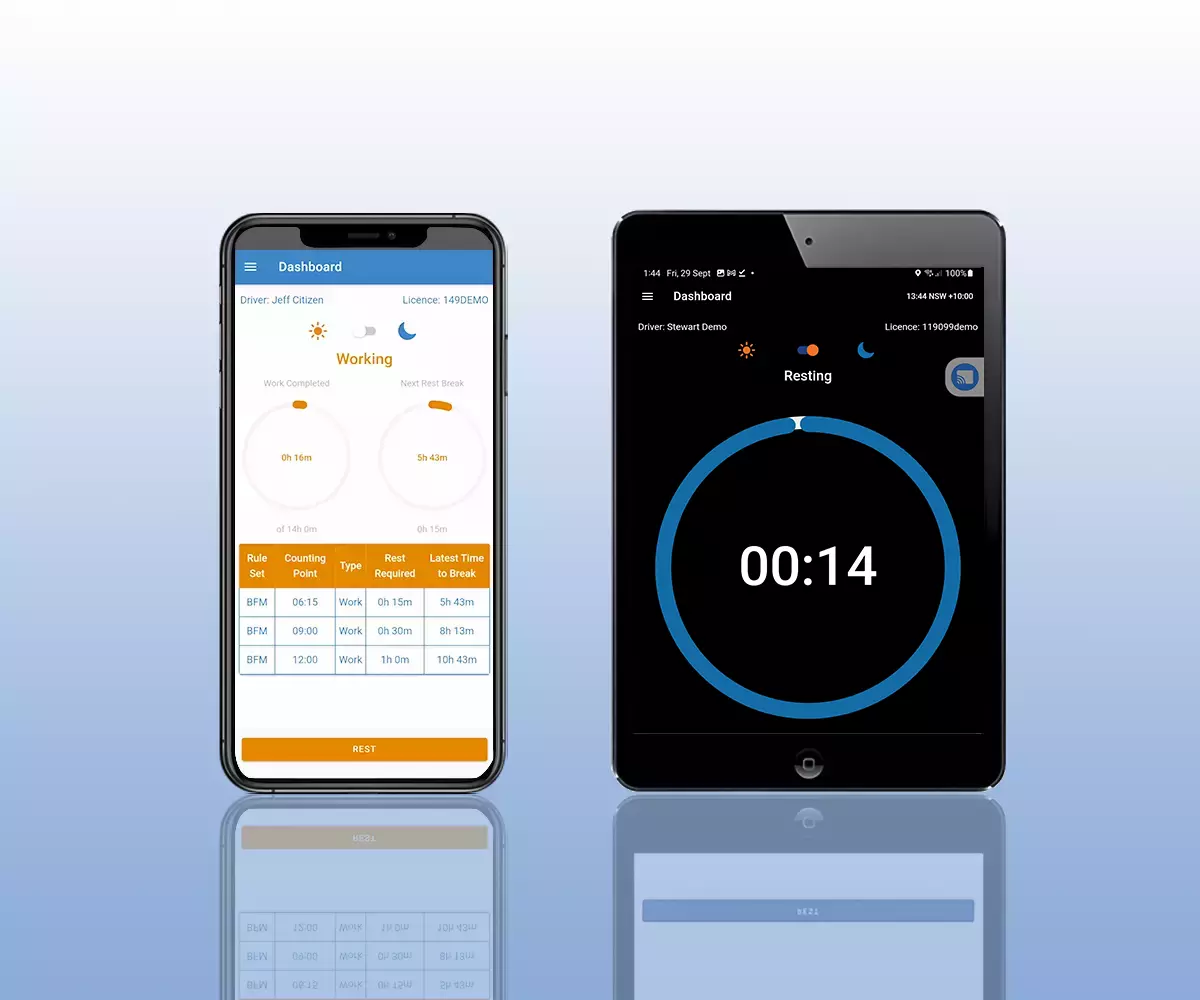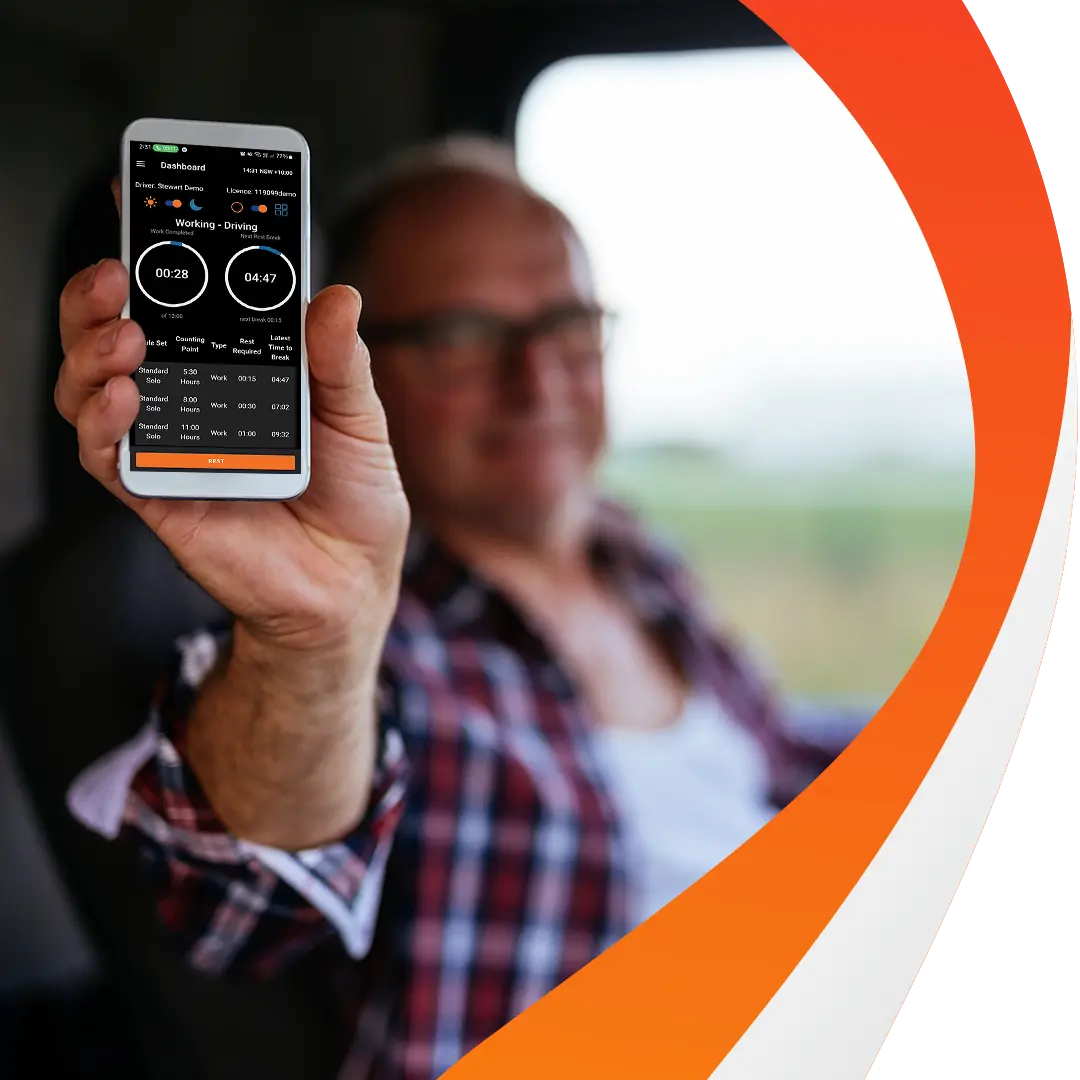This comprehensive guide is intended for transport industry professionals to thoroughly evaluate cloud-hosted Electronic Work Diaries (EWDs) accessed through Android or iOS mobile applications. The guide covers minimum requirements for EWD solutions to comply with National Heavy Vehicle Regulator (NHVR) standards, promoting robust operational functionality and data integrity in modern, mobile-driven user interface. Logmaster and Logmaster Partners can provide you with evaluation tools such as checklists and guides on request to help you complete your EWD evaluation.
1. Cloud Infrastructure and Security
- Verify that all EWD data is stored exclusively within Australian-based cloud servers, ensuring adherence to NHVR data sovereignty requirements. Data should not leave Australian jurisdiction under any circumstances.
- Confirm adherence to rigorous security management standards, to guarantee strong encryption protocols both during data transmission and storage, preventing unauthorized access or data breaches.
- Ensure that automated backups are routinely performed and clearly documented. The EWD provider must have defined disaster recovery procedures in place, ensuring quick data restoration to minimize operational downtime.
2. Mobile Application Usability
- Ensure the app is fully compatible with a wide range of Android and iOS devices, clearly stating supported operating system versions. Regular updates must maintain compatibility with the latest OS updates.
- Secure login methods must include advanced measures to verify user identities robustly, safeguarding driver and organizational data.
- Evaluate the app’s capacity to store events temporarily during periods without internet connectivity. Events must automatically sync with the cloud once connectivity resumes, preserving the accuracy and completeness of records.
3. Accurate Event Logging
- The system must utilize a highly accurate real-time clock synchronized with standard internet time servers (NTP). The app should automatically correct its clock following any disruption to ensure ongoing accuracy per NHVR EWD Standards.
- Entries must be logged with precision down to the minute (not to the second) as mandated by NHVR regulations. The system must prevent overlapping or duplicate entries within the same time interval, ensuring clarity and reliability of records.
4. GNSS (GPS) Integration
- Continuous GPS tracking must accurately capture the geographic coordinates at every work/rest event as required by NHVR standards, providing precise location data for compliance verification.
- The app must enable drivers to refine automatically-generated location names for improved accuracy. This editable capability helps ensure location clarity, crucial for compliance checks and audits.
5. Work and Rest Management
- The app must strictly enforce NHVR-defined mandatory rest periods. Drivers must be prevented from recording consecutive work periods without required rest breaks, ensuring fatigue management compliance.
- Events older than 24 hours must be locked as per NHVR standards to prevent unauthorized editing. Once locked, records must be immutable to maintain the integrity of compliance logs.
6. Odometer and Vehicle Transition
- Mandatory odometer readings at every work/rest transition must be accurately recorded, aligning with NHVR’s operational standards.
- The app must prompt and require explicit driver action to transition statuses from rest to work when switching vehicles, ensuring continuous accuracy and compliance with NHVR vehicle-related record requirements.
7. Fatigue Compliance and Alerts
- Verify that the app accurately monitors 7-day and 14-day rolling periods as specified in NHVR standards. It must clearly notify drivers and administrators well in advance of potential breaches.
- Ensure that the app correctly identifies and handles concurrent 24-hour counting periods, clearly marking relevant counting points to avoid accidental breaches.
- Evaluate the app’s capability to handle transitions between fatigue management plans (e.g., Standard Hours, BFM, AFM) precisely. The app must accurately apply NHVR reset rules, including specific conditions such as the 48-hour reset breaks.
8. Transparency and Auditability
- Comprehensive and transparent edit histories must be maintained within both the mobile app and administrative portals. Edit histories should provide clear information on who made changes, what changes were made, and timestamps, meeting NHVR audit standards.
- Provide authorized officers and auditors intuitive graphical and tabular views clearly displaying driver and vehicle compliance data as mandated by NHVR inspection guidelines.
9. Integration and Interoperability
- Verify the EWD’s full functionality of Schedule A API, which enables standardized data transfer between different EWD providers. Schedule A ensures that driver records, including work and rest event histories, are seamlessly transferred and integrated, crucial for regulatory compliance and reducing administrative overhead.
- Ensure near-instantaneous synchronization of mobile-recorded data with cloud servers, allowing real-time oversight by record keepers and compliance officers, essential for timely decision-making and regulatory compliance.
10. Administrative Management
- Evaluate clearly defined user roles (drivers, administrators, compliance officers, record keepers) with specific, secure access permissions aligning with NHVR privacy and data security standards.
- Automated and secure generation and distribution of compliance reports must be readily available in industry-standard formats (PDF/CSV), meeting NHVR reporting standards for roadside inspections and audits.
11. System Maintenance and Updates
- Confirm the provider regularly updates cloud infrastructure and mobile apps. Updates must explicitly avoid negative impacts on compliance-related functionalities, ensuring ongoing adherence to NHVR standards.
- Providers must proactively communicate detailed information regarding the scope, timing, and potential impacts of system updates, maintaining transparency and operational stability.
12. Documentation and Training
- The provider must offer extensive digital documentation, user manuals, and video tutorials within the app and administrative portals. This ensures comprehensive training that complies with NHVR-required operational knowledge.
- Clear instructions and easy access to professional support must be readily available for users experiencing technical difficulties or operational uncertainties, ensuring continuous compliance and reducing downtime.
Conclusion
Thoroughly assessing each point in this guide will enable transport professionals to determine confidently if a cloud-based EWD solution meets NHVR standards, thereby ensuring robust operational compliance, data integrity, and regulatory adherence essential for today’s transport industry. This guide is a starting point. Request documentation and checklists from Logmaster or your Logmaster provider to make sure your evaulation process covers everything you need.








